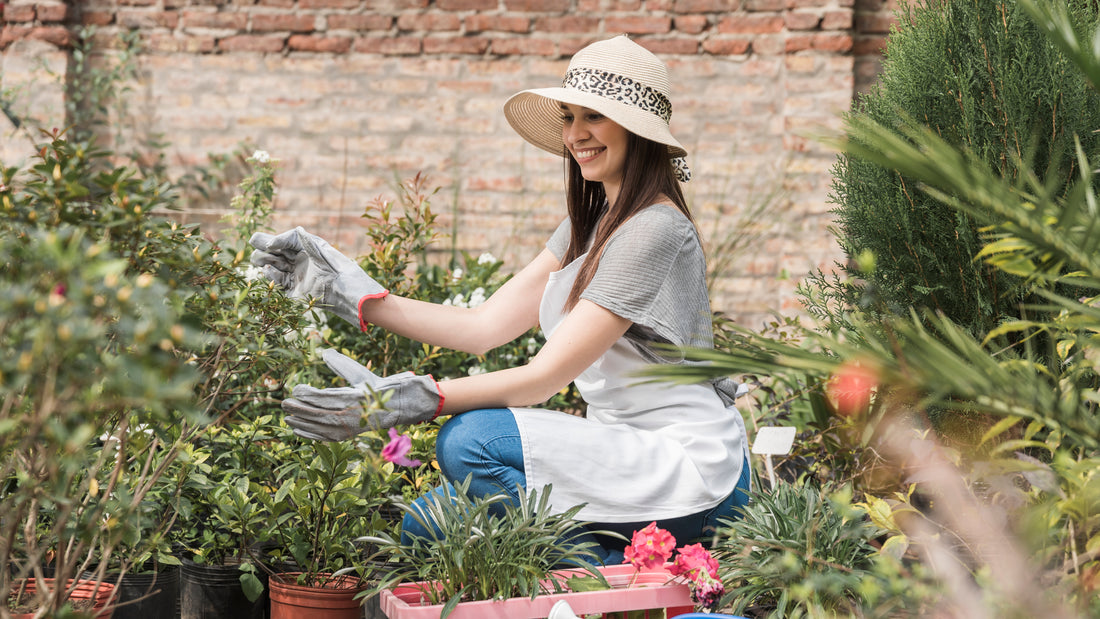
The Use of Essential Oils in Gardening
Share
Essential oils have gained popularity in recent years not only for their aromatic properties and therapeutic benefits but also for their unique applications in gardening. These concentrated plant extracts can serve a variety of purposes in the garden, ranging from pest control to promoting plant health. This simple guide explores how to effectively utilize essential oils in gardening, highlighting specific oils that are beneficial and offering practical methods for their application.
Benefits of Essential Oils in Gardening
Essential oils are derived from various parts of plants, including leaves, flowers, bark, and roots. They contain potent compounds that can provide significant benefits in a gardening context. Their natural insect-repelling properties make them an excellent alternative to chemical pesticides, which can be harmful to the environment and beneficial insects. Additionally, essential oils can enhance soil health, promote plant growth, and even act as fungicides.
Recommended Essential Oils for Gardening
Several essential oils are particularly effective for gardening purposes. Here are some of the most beneficial:
- Peppermint Oil: Known for its strong scent, peppermint oil is effective in repelling pests such as aphids, ants, and spiders. It can also invigorate plant growth.
- Lavender Oil: This oil not only attracts pollinators but also deters pests like moths, fleas, and mosquitoes. Its calming aroma can also enhance the gardener's experience.
- Tea Tree Oil: Renowned for its antifungal properties, tea tree oil can help combat mold and mildew on plants. It’s particularly useful in preventing fungal diseases.
- Citrus Oils (Lemon, Orange): These oils are effective in repelling a variety of pests, including ants and spiders. Additionally, they can enhance the scent of the garden.
- Eucalyptus Oil: This oil can deter a range of garden pests, including aphids and beetles, while also promoting overall plant health.
Methods of Using Essential Oils in Gardening
Incorporating essential oils into gardening practices can be achieved through various methods, each suited to specific needs:
- Pest Repellent Spray: To create a natural pest repellent, mix 10-15 drops of essential oil (such as peppermint or lavender) with water in a spray bottle. Optionally, add a few drops of liquid soap to help the oil mix better with water. Shake well and spray directly on affected plants, taking care to cover both the top and underside of leaves.
- Soil Enhancer: Essential oils can also be added to potting soil to enhance its properties. For every gallon of potting soil, add 1-2 drops of essential oil (such as tea tree or eucalyptus). Mix thoroughly before planting to promote healthy root systems and deter pests.
- Fungicide: To combat fungal issues, mix a solution of 10 drops of tea tree oil with 1L of water. Spray this solution on the affected plants or use it as a preventive measure on susceptible plants.
- Aromatic Companion Planting: Utilize essential oils to enhance companion planting strategies. For example, planting lavender alongside vegetables can attract beneficial insects while repelling pests. Additionally, diffusing essential oils in the garden can create an aromatic environment that promotes plant health.
- Essential Oil Soaks: For plants that are particularly susceptible to pests, consider soaking the roots in a solution made from water and essential oils (about 5 drops of oil per quart of water) before planting. This can help create a protective barrier against pests.
Conclusion
The use of essential oils in gardening presents a sustainable and effective way to promote plant health and manage pests. With their natural properties, essential oils such as peppermint, lavender, tea tree, citrus, and eucalyptus can enhance the gardening experience while minimizing the reliance on chemical alternatives. By employing various methods to integrate these oils into gardening practices, gardeners can foster a healthier, more productive garden environment. Ultimately, essential oils offer an innovative approach to gardening that aligns with the principles of sustainability and organic practices.
